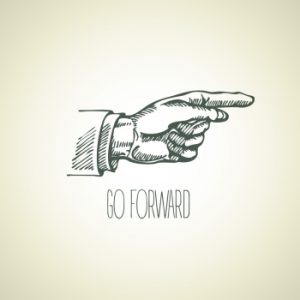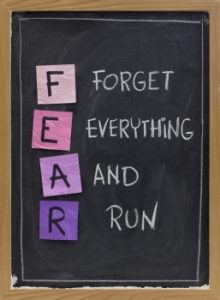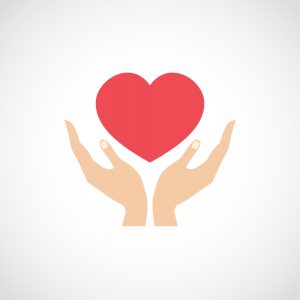To much surprise, relapse generally doesn’t happen all of a sudden. Relapse is a process that involves three stages: emotional relapse, mental relapse and physical relapse. By understanding these stages and the signs that accompany them, you can reach out for help sooner than later.
Let’s explore the three stages of relapse in more depth so that you know what signs to look for and how to prevent them from complicating your sobriety.
Three Stages of Relapse
Stage 1: Emotional Relapse
In emotional relapse, you’re not yet thinking about using drugs and alcohol, but your emotions and behaviors are turning negative. For example, you might be acting in self-destructive ways, such as by expecting to return to rehab in Pasadena California. Unfortunately, if you plan to relapse, it’s that much easier to act on it later on.
In order to stay on track with your sobriety goals, you must be emotionally grounded. This means avoiding the people, places and things that create temptation, monitoring your emotions and creating a relapse prevention plan that addresses issues early.
Here are some red flags of emotional relapse:
- Excessively worrying about your new, sober life and if you can find happiness in it.
- An overwhelming feeling of sadness that makes you unmotivated to change. You may also have little interest in eating.
- Resentment or bitterness about having to give up your old life. Experiencing jealousy towards friends who didn’t have to go to drug detox in California.
- Instantly rejecting any constructive criticism. Shutting people out and thinking that they’re not on your side.
- Mood swings. Trouble controlling your reactions to people and events. Overreacting over little things and being unwilling to compromise with others.
- Poor self-care. Eating a poor diet and not getting enough sleep at night. Poor managing of stress levels.
- Withdrawing from friends and family. Not going to your support groups.
Emotional relapse sets the stage for mental relapse, which we will discuss in the next section. To prevent emotional relapse from going any further, self-care is essential. Recognize that you are having negative thoughts and emotions and that you need extra care right now.
Moreover, reach out to your sponsor or trusted friends and family. Prepare healthy meals, get enough rest at night and increase the number of support groups you’re going to. Review the relapse prevention plan you received in Pasadena drug treatment and try stress reduction techniques, such as deep breathing or meditation.
Stage 2: Mental Relapse
In mental relapse, your mind starts going back and forth. Part of you wants to use and part of you doesn’t. This war will become harder to fight if you don’t address mental relapse. By the end of this stage, you will be thinking about using again – perhaps even fantasizing about it. This makes it harder to stay sober, especially when you’re facing stressful situations.
Some of the signs of mental relapse are:
- Reminiscing about past use. Are you thinking about the people, places and things you used with?
- Glamorizing past drug use. When you think about using drugs and alcohol, does your brain automatically go back to the good? This means that your brain is forgetting about the pain and misery your addiction brought.
- Hanging out with old friends. When you returned home from treatment, you probably had to cut ties with certain people. If you’re rekindling these relationships, ask yourself why.
- Not following your aftercare plan. Your aftercare plan from drug rehab in California is important because it helps you stay on track with your goals, even during stressful times. Not following this plan makes you vulnerable.
- Playing out your relapse. Relapse isn’t an event. Usually, people start thinking about where they would get drugs, how they would use them and when, such as when Mom and Dad aren’t home.
Mental relapse is what comes before physical relapse, so it’s very important that you recognize this stage and address it. Otherwise, your brain will continue to fantasize about drugs and alcohol and prompt you to make the physical choice. The brain does this because it hasn’t fully healed from the addiction.
The best ways to reduce mental relapse include:
- Play the tape through. When you start thinking about using again, play the tape through. Don’t just think about using the drug. Think about how it would impact your life. Your loved ones would be disappointed. You might have to go back to rehab. You could lose your job or your kids.
- Reach out for help. Tell someone about your urges: your sponsor, the people in your support group, a therapist or a friend. Saying things aloud and working through your inner struggles can be incredibly powerful.
- Distract yourself. Over time, the urges to use will become less frequent and less severe. For now, distract yourself when you’re feeling conflicted, such as by going for a walk, seeing a movie or volunteering in the community. The urge will pass, usually within 30 minutes.
Stage 3: Physical Relapse
If you don’t address emotional and mental relapse, it won’t take you long to get to physical relapse. This is the last stage and the time when you drive to your dealer or the liquor store. By this point, it’s almost impossible to turn the car around and make a better decision, as you’ve already been thinking about this for some time.
Relapse is common, and many addicts do relapse before getting sober. However, relapse does not have to be part of your story. While relapse is not a failure, it is a setback. You may have to return to rehab or take part in outpatient rehab in Pasadena. You may also have consequences, such as losing your job or custody of your children.
If you do relapse, the most important thing is to reach out for help immediately. Call your sponsor or a trusted friend. If you use once, it’s much easier to get back on track with your recovery goals than if you are to start using multiple times. So, don’t dwell on one bad decision. Pick up the phone and call someone who can help.
Call Pax House Recovery for a Continuum of Care
Remember, relapse is not a single event. It is a process that can often be stopped if you can identify the signs and get help. As you progress with sober living in Pasadena, these urges will be less frequent, making it easier to stay on track with your goals.
If you are going through any of the stages of relapse, contact Pax House Recovery. Many clients take advantage of our programs for a full continuum of care – and you can, too.









